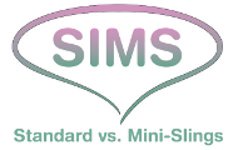B
B-Cos
Bladder Cancer Core Outcome Sets
Heterogenous outcome reporting in non-muscle-invasive bladder cancer (NMIBC) effectiveness trials of adjuvant treatment after transurethral resection (TURBT) has been noted in systematic reviews (SRs). This hinders comparing results across trials, combining them in meta-analyses, and evidence-based decision-making for patients and clinicians.
C
Catheter II
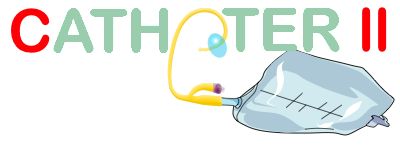
Catheter II is a randomised controlled trial comparing the clincal and cost effectiveness of various washout policies versus no washout policy in prevent catheter associated complications in adults living with long term catheters.
Aim
To keep in touch with patients for 2 years and evaluate a range of outcome measures including the number of catheter blockages; satisfaction, catheter-associated urinary tract infections and other complications as well as costs to the NHS.
To find out more information about the study click here
E
Evolve
EVOLVE is a unique collaboration of a profession society (European Association of Urology ), guideline panels, researchers, clinicians and patient representatives to improve guideline development and implementation for genitourinary cancers in Europe. The aim of the project is to develop a model of patient involvement that will give patients a meaningful voice in the design and delivery of care and will investigate how wider stakeholders can help to integrate the patient voice into guidelines.
EVOLVE is funded by
To find out about UCAN click here
For more information on the EVOLVE project click here
H

Horizons
The Horizons model is a departure from long-term charity funding as the mainstay of healthcare development in sub-Saharan Africa. The project is underpinned by a principle of entrepreneurial philanthropy bringing together four key investment partnerships - the international commercial sector, the local business community, the philanthropic world and committed implementation collaborators - to deliver financially self-sustainable high-quality healthcare provision in low income country settings.
To ensure Horizon's sustainability and that The Gambia can enjoy the kind of medical care we take for granted, ongoing financial contributions are urgently required for ongoing operational costs, for those in the poorest areas who cannot be treated or incur complications during treatment and for those who require specialised care.
To find out more about HORIZONS or visit Horizons Trust UK
I
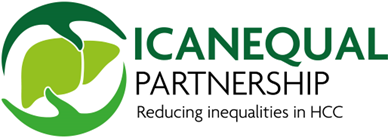
ICAN EQUAL
The purpose of this partnership is to build a Community of Expertise (a group of individuals who share interest in liver cancer) through conversations with key stakeholders. This will enable us to develop the understanding needed to reduce inequalities in liver cancer diagnosis and treatment. This partnership will include communities that typically do not participate in liver cancer research but are most impacted by the current inequalities.
For more information about the study
ICAN TREAT

This is a unique initiative tailored specifically for those who support those living with and beyond cancer globally. The main aims are to encourage earlier detection and diagnosis and to reduce the gap between screening and presentation for further diagnostic tests and treatment. This should be accompanied by appropriate treatment and supportive care.
For more information or follow the link https://icantreat.org/
Imagine
IMAGINE is a Pan-European National Urological Society Implementation Science Collaborative established to monitor clinical practice variation across over 40 European countries, to monitor baseline adherence to guideline recommendations and to identify determinants of non-adherence. IMAGINE will go on to develop knowledge transfer interventions geared to improve adherence. The first pilot has seen adherence data capture relating to treatment of over 6000 patients. To find out more on IMAGINE's objectives, please see the following editorial and a recent publication.
M
Metis

The METIS Collaboration was established in 2011 involving the Academic Urology Unit (AUU), University of Aberdeen, the UCAN cancer charity and (then) the Institute of Work, Health & Organizations, University of Nottingham. Currently, the Collaboration also involves the Institute of Health & Society (HIS), Newcastle University and the Centre for Sustainable Working Lives (CSWL), Birkbeck University of London. It has the support of Macmillan Cancer Support in Scotland. The work of the METIS Collaboration is focused on the psychological, social and organisational issues that relate to the impact of chronic illness on work and working lives. The current focus is cancer survivorship.
O
Optima
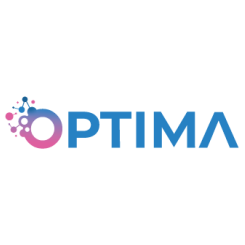
OPTIMA (OPtimal Treatment for patients wiht solid tumours in Europe through Artificial Intelligence)
OPTIMA is a 34 partners-based IMI project. The programme aim is to design, develop and deliver the first interoperable and GDPR-compliant European real-world oncology data and evidence generation platform based on the needs of the clinicians and patients, in an inclusive and sustainable way.
For more information click here or visit OPTIMA - Tackling Cancer through Real World Data (optima-oncology.eu)
Otis
P
Pioneer
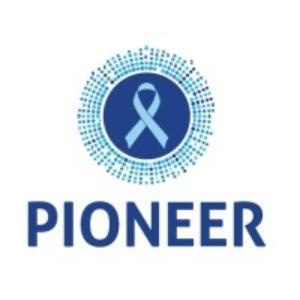
PIONEER is a 12 million euro funded project made up of 37 partners from 9 countries. The main aim of this project is to harness the power of real world (Big) data to inform the clinical practice recommendations in the field of Prostate Cancer. Represented by our unit, the University of Aberdeen is one of the key parnters in the PIONEER consortium and our Academic Urology Unit (AUU) team members each have key research roles in driving new knowledge on how best to incorporate real world data to inform clinical practice guideline reccomendations - the very first international guideline developement body to formally embark on this path. Each member of our unit has key roles for certain Work Projects. You can read more about these different work projects and their aims here.
PIONEER is part of the Innovative Medicine Initiative's (IMI's) “Big Data for Better Outcomes” (BD4BO) umbrella programme. The BD4BO mission is to improve health outcomes and healthcare systems in Europe by maximising the potential of Big Data
PIONEER aims to transform the field of prostate cancer care with particular focus on improving prostate-cancer related outcomes, health system efficiency and the quality of health and social care across Europe.
For more information visit https://prostate-pioneer.eu/
Pure

PUrE is a research study collecting information on the different ways of treating lower pole kidney stones. PUrE stands for the Percutaneous nephrolithotomy, flexible Ureterorenoscopy and Extracorporeal shockwave lithotripsy for lower pole kidney stone.
Kidney stone disease is very common (around 10% of adults will suffer in their lifetime) and mainly affects adults of working age (18 - 55 years). Over a quarter of patients with stones will require treatment and about half of all patients will go on to develop another stone.
Although some stones do not cause any problems, patients can develop serious symptoms including pain, infection, bloody urine and their kidneys can stop working as well as normal.
The lower pole (bottom) of the kidney is the most common location for stones in the kidney. These stones are more likely to require treatment, because they can be less likely to pass on their own.
Partner
R
Resect

RESECT (Transurethral REsection and Single instillation intra-vesical chemotherapy Evaluation in bladder Cancer Treatment (RESECT) Improving quality in TURBT surgery.)
RESECT is a collaborative project with the British Urology Researchers in Surgical Training (BURST) group, including researchers from the Academic Urology Unit and HSRU. The primary objective is to determine if audit and feedback can improve the quality of TURBT surgery and reduce early recurrence rates. We will measure the achievement of TURBT quality indicators across hospitals, regions and countries and compare these against evidence-based recommendations. We aim to determine if any hospital, service, training, or technical factors impact the achievement of quality indicators and/or early recurrence rates. We aim to use these data to present hospital and clinician performance back to surgeons, as a method of driving quality improvement. The timing of feedback to different hospitals will be varied randomly so that we can determine if the feedback is having an impact on audit performance.
Aims
A main aim of RESECT is to test intereventions aimed at improving adherence to guidelines around single instilation of chemotherapy adn documentation of the procudure - which have been shown to be associated with improved patient outcomes. RESECT also aims to answer some key unknowns :
- Does reporting and comparing our TURBT quality make us do it better?
- What things should we measure to determine TURBT quality?
- What rate of achievement should we aim for in our practice?
- What factors are associated with better achievement of TURBT quality?
R-Cos
Renal Cancer Core Outcome Sets
Renal cell cancer represents 2-3% of all cancers with the highest incidence in Western countries. Over the last two decades the incidence of RCC increased by about 2%, both worldwide and in Europe. The incidence varies globally, with the highest rates in developed countries such as North America and Europe and the lowest rates in Asia and Africa. In Western European countries this incidence stabilised over the past decade. In 2012, there were approximately 84,400 new cases of RCC and 34,700 kidney-cancer-related deaths in the European Union.
Aim of Study
The methods for each of the three COS will follow broadly the same process.
1. To identify a long list of outcomes reported in prior RCC intervention studies: Systematic reviews of RCTs included in relevant clinical practice guidelines and/or systematic reviews of intervention effectiveness (one each and separately for L-RCC, LA-RCC and M-RCC).
2. To identify outcome considered as important by patients who have experience RCC and its treatments: Systematic reviews of qualitative studies reporting on the experiences of RCC patients and/or primary qualitative interview studies (one each and separately for L-RCC, LA-RCC and M-RCC).
3. Delphi surveys involving urologists, oncologists, cancer specialist nurses (grouped as health care professionals) and RCC patients who have received treatment, to score the importance of each outcome identified (one each and separately for L-RCC, LA-RCC and M-RCC).
4. Consensus meetings with representatives from each stakeholder group to discuss and vote on unclear results from the Delphi and to ratify the COS (one each and separately for L-RCC, LA-RCC and M-RCC).
5. Assess the definitions and measurements for clinician reported outcomes (for example recurrence, progression etc) and where there is no one clear most appropriate and feasible definition and measurement we will engage HCPs in a consensus processes to identify the most appropriate definitions and measurement for specific purposes such as RCTs and routine clinical data collection
6. Assess the psychometric properties of each PROM identified for L-RCC, LA-RCC and M-RCC and where there is no one clear 'best' and most feasible PROM we will engage HCPs in a consensus processes to identify the most appropriate PROM for specific purposes such as RCTs and routine clinical data collection.
S
SUI-Cos
SIMS
